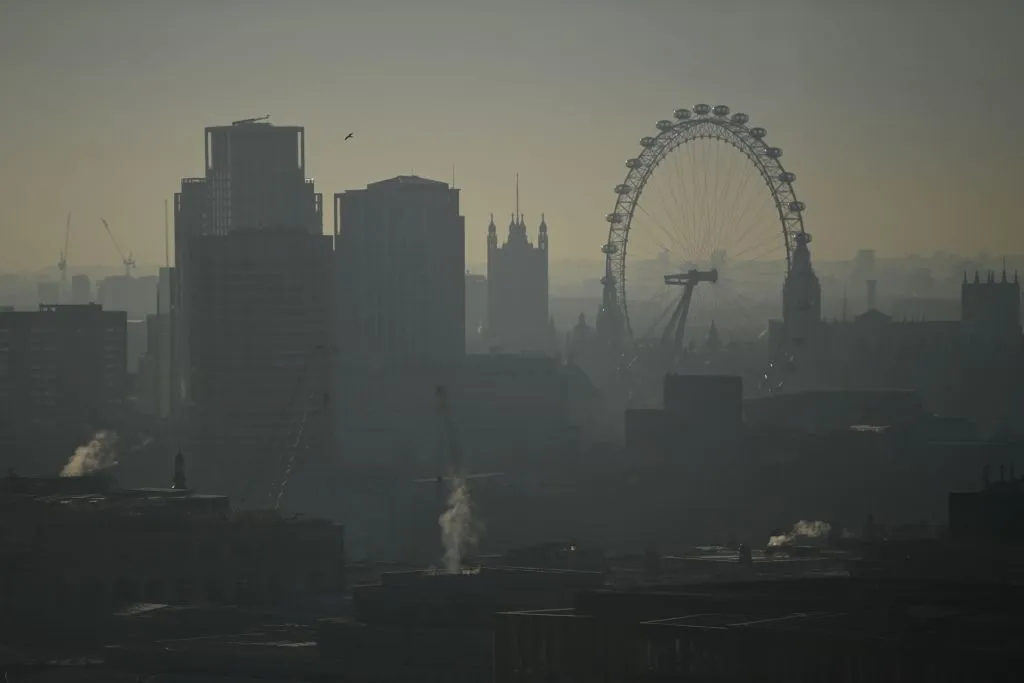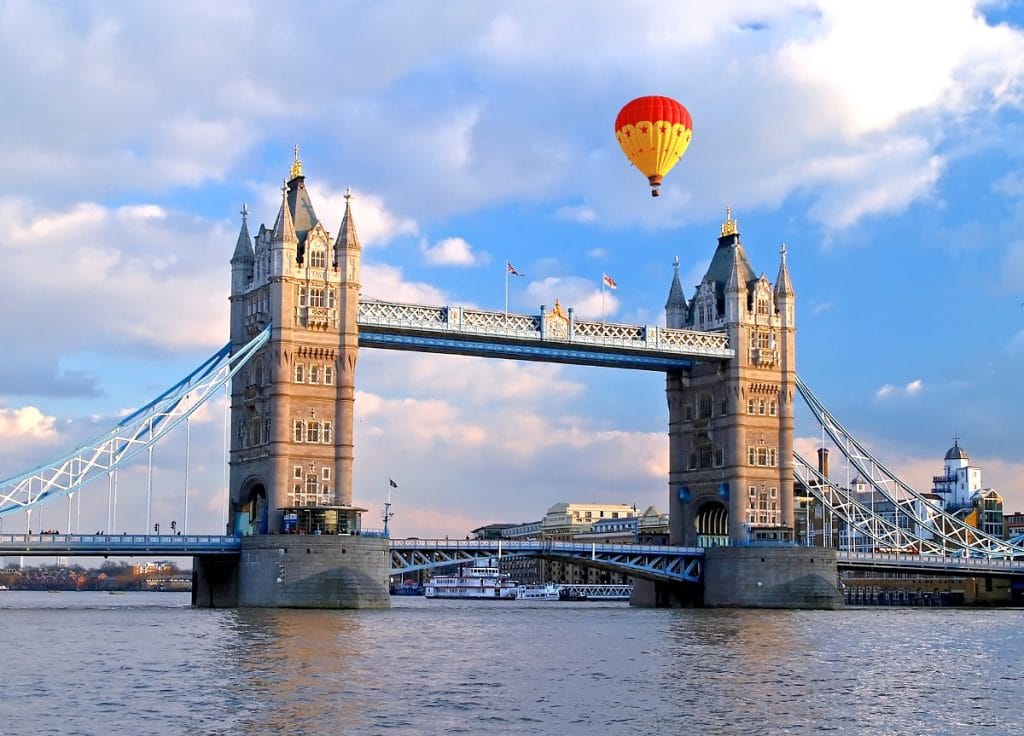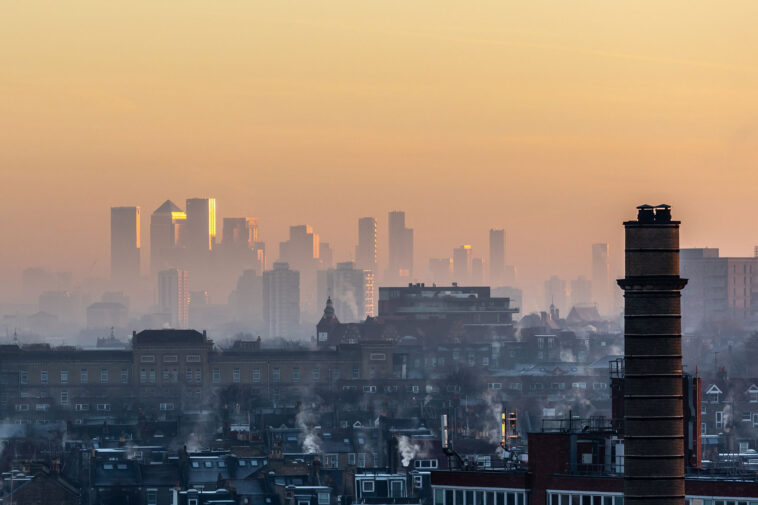Air pollution has been an ongoing issue in London for years, and the situation only seems to worsen. In recent years, there has been widespread concern over the high levels of air pollution in the city and its impact on its residents’ health. A new study has revealed that the air quality in London is at a six-year low, with the cost of living being the main contributing factor.
Frequent Warnings
London residents faced a prolonged air pollution warning this month, with wood burning identified as a major contributor to the problem. The city’s southwestern suburbs bore the brunt of the pollution, primarily due to the burning of domestic wood and solid fuel. These sources accounted for 60-70% of the harmful soot particles emitted.
Adding to the burden, the cost of living crisis in the UK has intensified, with food prices experiencing a staggering 16.7% inflation rate—the highest since records began in 2008. This alarming situation highlights the challenges faced by households in managing their budgets.
Moreover, London’s air pollution has hit its highest levels in over five years, raising concerns about the effectiveness of policies to curb such pollution and the effects of diesel emissions on the environment and public health. In an exclusive report last year, Air Quality News revealed that London councils had failed to issue any fines for using wood-burning stoves despite most of the city being designated as a Smoke Controlled Area.
Alarming Findings

A recent study conducted in London has revealed that teenagers exposed to air pollution for extended periods are more likely to have higher blood pressure. Led by scientists from King’s College London, the research specifically found a stronger association between air pollution and elevated blood pressure in girls, with the cause being tiny particles of pollution in the air. Interestingly, the study also suggested that the higher lung capacity and increased physical activity of the boys studied may have affected their lower blood pressure levels.
Researchers analysed information from a sample of over 3,000 teenagers in London to gather this data. In addition to the findings on blood pressure, the study discovered a surprising link between exposure to high concentrations of nitrogen dioxide (NO2) and a reduction in blood pressure.
The results of this study shed light on the alarming levels of air pollution in London, which have been deemed illegal since 2010. 2024 commemorates the tenth anniversary of Ella Adoo-Kissi-Debrah’s passing. In the years leading up to her passing, Ella, who resided near Lewisham’s South Circular Road, battled numerous seizures and made almost 30 hospital visits. It was in December 2020 that her tragic death was officially attributed to air pollution, a groundbreaking recognition in the UK. New research indicates that air pollution in the capital has caused approximately 6,000 excess deaths in 2019 alone.
Diesel: A Major Contributor to Air Pollution
Diesel emissions are one of London’s most significant contributors to air pollution. Despite their once-high popularity, diesel fuel-powered vehicles are now the primary source of NO2 in the capital, with an estimated 80% of NO2 coming from diesel vehicles. The issue gained global attention in 2015, when the Volkswagen Group, a leading German automaker, was found to have installed ‘defeat devices’ in their diesel cars to cheat on emissions tests in the United States, giving false results that met legal requirements but were higher in real-world conditions. The scandal has since become one of the most extensive corporate fraud cases, with dozens of similar cases from other carmakers being investigated worldwide, including Nissan, Mercedes, and BMW emission claims.
The latest report from the Royal College of Physicians and the Royal College of Paediatrics and Child Health estimated that outdoor air pollution contributes to 40,000 premature deaths yearly in the United Kingdom. Air pollution has been linked to health problems such as asthma, cancer, heart attacks, and strokes and can also negatively affect cognitive functions.
Government Action

To tackle the issue of air pollution, London Mayor Sadiq Khan has implemented measures such as the Ultra-Low Emission Zone (ULEZ), launched in 2019. The ULEZ is an attempt to improve the air quality in London by discouraging drivers from using polluting vehicles. The zone requires drivers of non-compliant cars to pay a charge for entering the zone to encourage the purchase of low-emission vehicles and reduce the number of diesel vehicles on the roads.
95 per cent of vehicles seen driving in London on an average day now meet the ULEZ emission standards, up from just 39 per cent in 2017. This means that the vast majority of drivers are not affected by the ULEZ and do not need to pay the daily charge.
Despite these measures, London still ranks as the third-worst city in Europe for traffic pollution, with levels of NO2 exceeding legal limits in many areas. The United Kingdom has committed to phasing out new petrol and diesel cars by 2030, with hybrids following in 2035, to reduce carbon emissions and improve air quality. Other cities worldwide are implementing similar measures, such as Stockholm, Barcelona, and Paris, which aim to ban all petrol and diesel cars by 2030.




